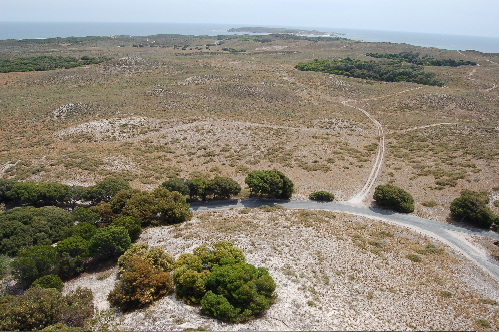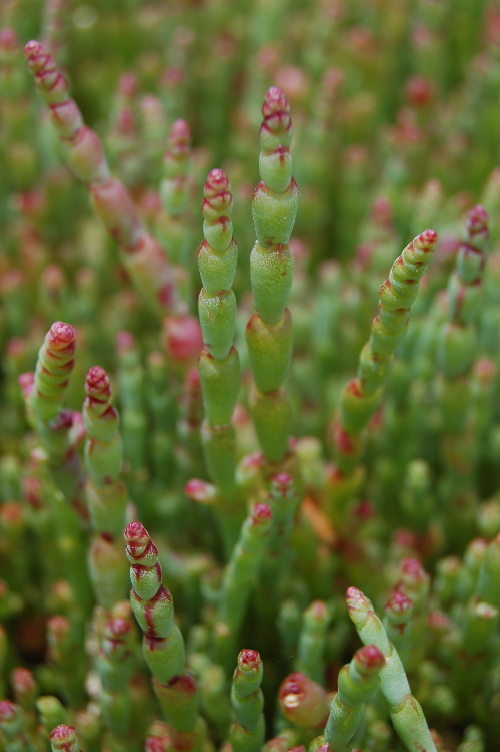Before white people populated the Swan river this beautiful little succulent called samphire (Halosarcia lepidosperma) used to be found all over the place. Now I have to go further afield to find it.The other day I and my brother headed over to Rottnest, an island 18 kms west of the coast of Perth. This island hadn’t been inhabited for thousands of years prior to the nineteenth century, and Rottnest island pine and tea trees clothed the land. These trees can happily manage with exposed, salty conditions, but not with prying farmers and errant fires. The nineteenth century was not kind to Rottnest, and today, as we saw standing at the top of the lighthouse in the centre of the island, it is quite deforested.

People who live in Perth nearly always have memories of going on summer holidays to stay in a cabin or a bungalow on the island off the coast. I have such memories, and they are good ones.
My dad was telling me the other day of how he and his friends would go over as teenagers in the 1960s and camp in the campground. The roads were not sealed then, and they were allowed to have a fire at their camp site. They would catch thirty crayfish a day, and they would all sit by the fire at night playing the guitar and hanging out.
As you can see, this island has developed a special place in my dad’s affections. Over the last seven years he has been over once a year each winter to help plant around 25 thousand a year of the native tea trees or pine trees. I think its nice to see this kind of reciprocal care between a person and a place.
The Rottnest Society is the organising group for the plantings, and you can get a free bed in a cabin if you go over and help with the planting for a weekend in July. The fence in this photo is stopping quokkas, the gregarious mascots and macropods of the island, from eating the young trees.

Eventually the native pine trees have a deep shade of green that you’d never expect to come out of this salty and sandy island.
Me and Sam walked down to Armstrong Bay and jumped into the water. The clarity of the water was such that even though I wasn’t wearing a mask, I could see for metres and metres every which way I looked.
Bubbles drifted up to the surface as I slowly exhaled, and looked at the sea floor beneath me and the plants around me. The light illuminated everything, so that the browns of the sea grasses and the greens of the other plants glowed brightly. The cool water slid over my skin, and for that moment I could have my dad forty years earlier: I was just a male body under the water, marvelling at the colours and the brightness in front of me, off a beach on Rottnest. As long as I was underwater for that moment I felt free of time and free of all the troubles of the world above the surface.


